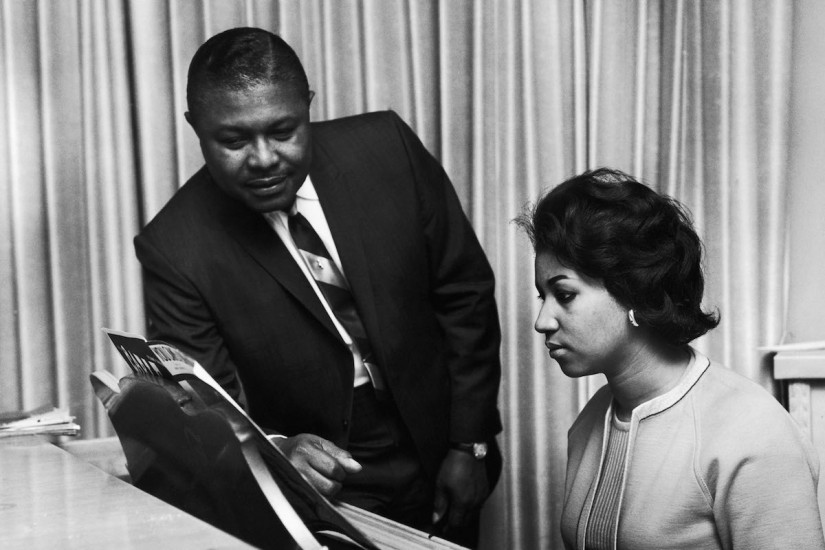At eighteen, already a mother of two, Aretha followed her crossover dreams into pop. New Salem’s congregants were disturbed. “You can’t serve two masters!” declared one, speaking for the rest. C.L. stubbornly defended his daughter’s decision. Aretha was “switching to the popular field with my permission,” he sternly told his parishioners, refusing to “frown upon popular or jazz music. Good Christian people can be involved in the popular field.”
And as mercurial as he was, C.L. never wavered in his support of Aretha. For her sake, moreover, he was willing to face down an angry congregation again and again. Years later, still obliged to support her “blasphemy,” C.L. said, “Aretha is just a stone singer. If you want to know the truth, she has never left the church.”
Aretha agreed. “My heart is still there in gospel music,” she told a Time reporter during her heady late-’60s rise to pop superstardom.
The good people of New Bethel needn’t have fretted. Aretha was abandoning neither her birthright nor them, her first audience. Since going pop, she has released two gospel albums, each twice the usual length: Amazing Grace (1972), the best-selling gospel album of all time (with a rousing sermon by none other than C.L.), and One Lord, One Faith, One Baptism (1987), recorded in New Bethel with Rev. Jesse Jackson and Mavis Staples on hand.
As most likely never occurred to Aretha’s father, the argument of his adulthood between gospel music and pop was merely a replay of the schism that had exercised inhabitants of the Mississippi Delta during his boyhood, the quarrel between churchman and bluesman, between Satan and the Lord. Young Clarence had embodied this conflict, equally devoted to his Baptist faith and to Blind Lemon Jefferson and Charley Patton, doomed to hell on account of their music.
Forty years later, with his blessing (as it were) of Aretha’s decision plus his love of unholy jazz and still-unholier blues, Franklin was, with full enthusiasm, if not full clarity, deepening his lifelong entanglement in the struggle between sacred and profane music.
Yet as we’ve seen again and again, this so-called antagonism is just surface noise obscuring a deeper identity. The two Franklins, Ray Charles, Sam Cooke, Thomas A. Dorsey, the Staples Singers, Joe Tex, Solomon Burke, and even Charley Patton, who wrote and recorded a number of religious songs, were all much more living, walking syntheses than they were cloven spirits.
Music was the one realm where C.L. managed to heal his self-alienation, reshaping a presumably fundamental opposition into a seamless unity. When the R&B singer Bobby “Blue” Bland lost his scream, he studied his friend C.L.’s recording of “The Eagle Stirreth Her Nest,” finally lifting his trademark “squall,” a distinctive (some say revolting) snort, from C.L.’s whoop. Crafting, that is, an R&B-style vocal effect from the Reverend’s sermonizing.
